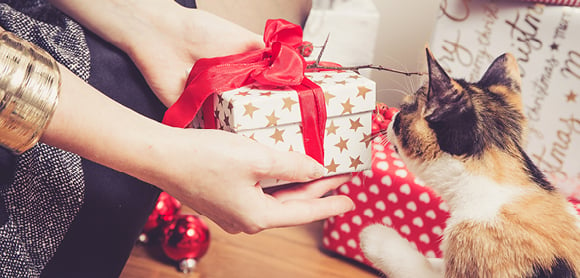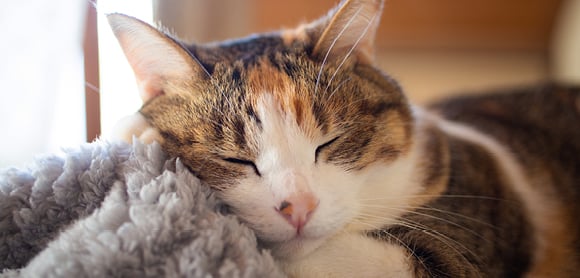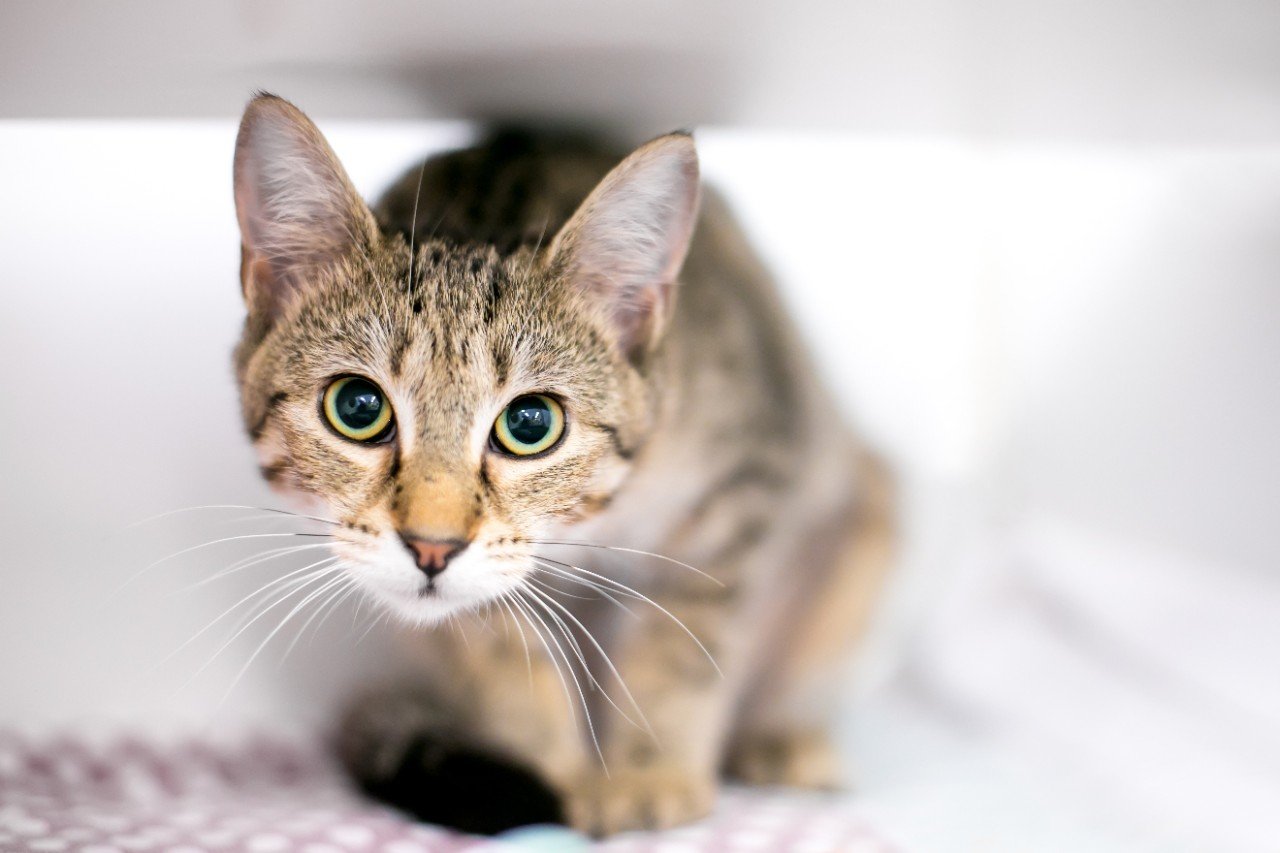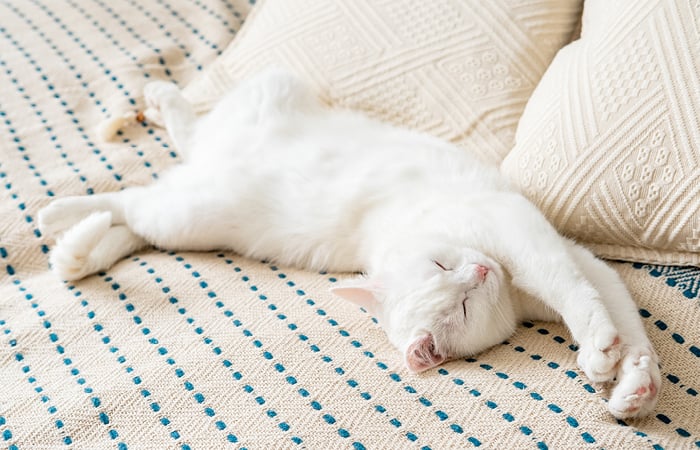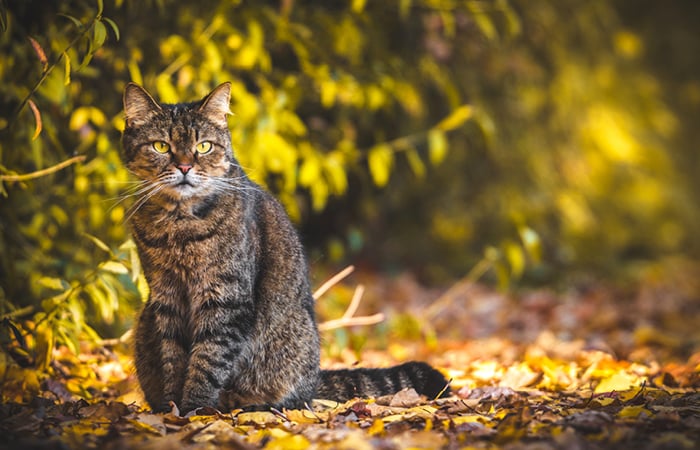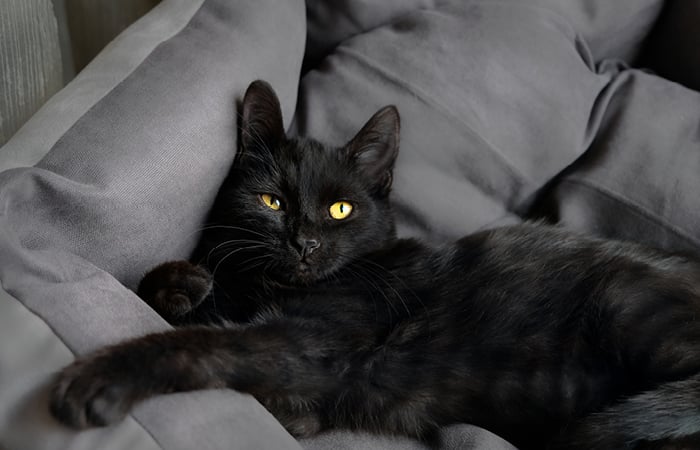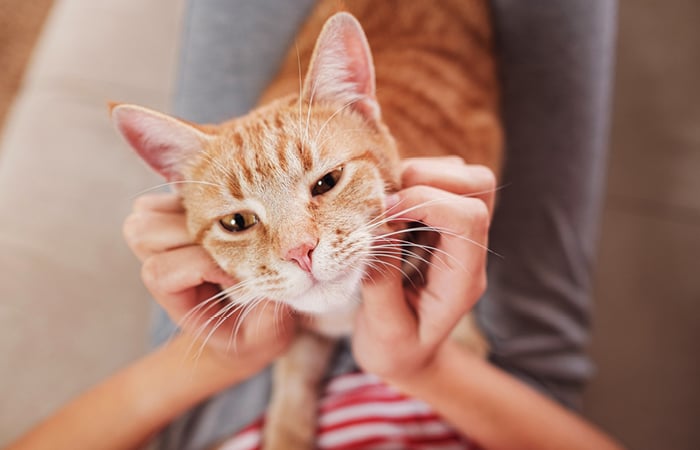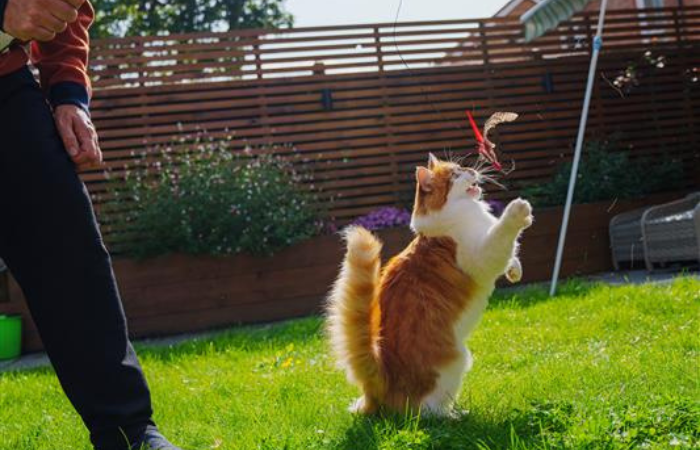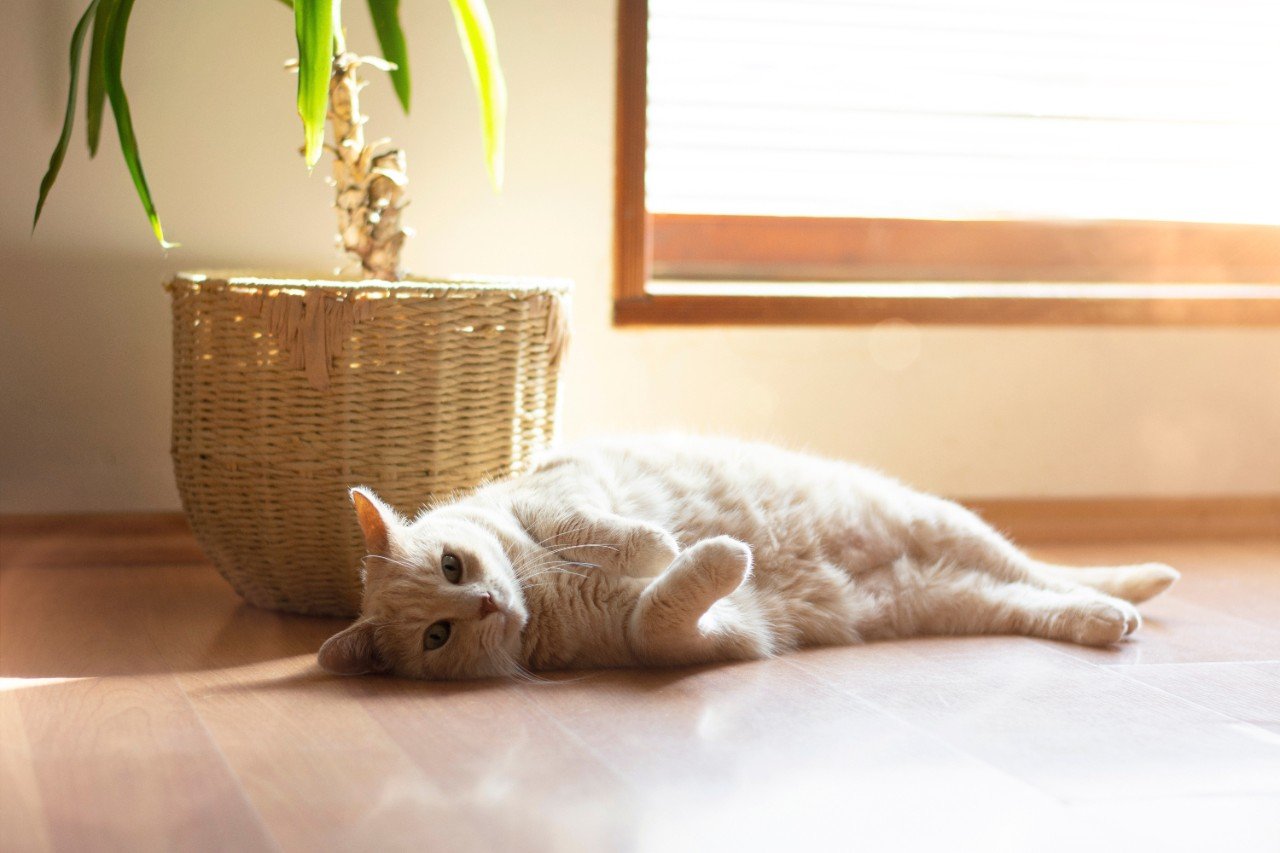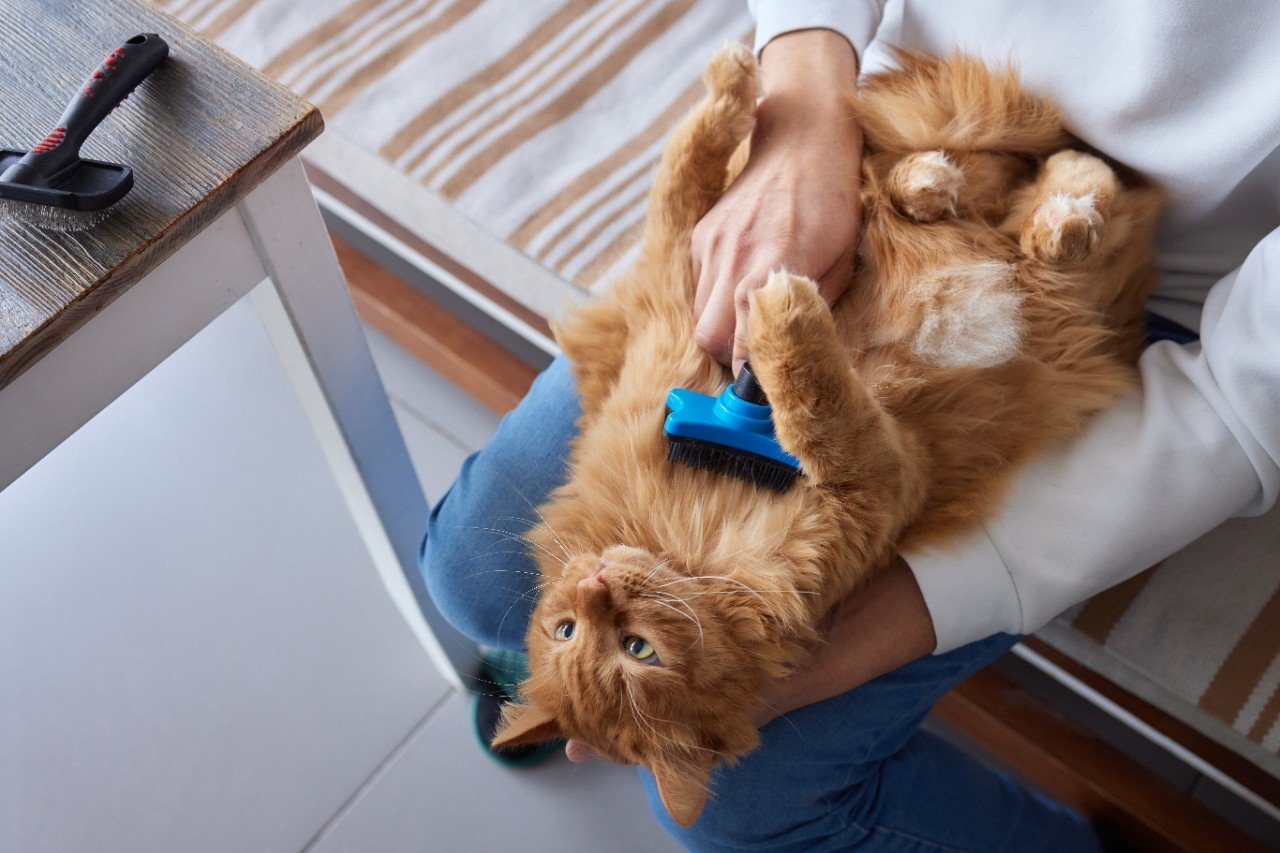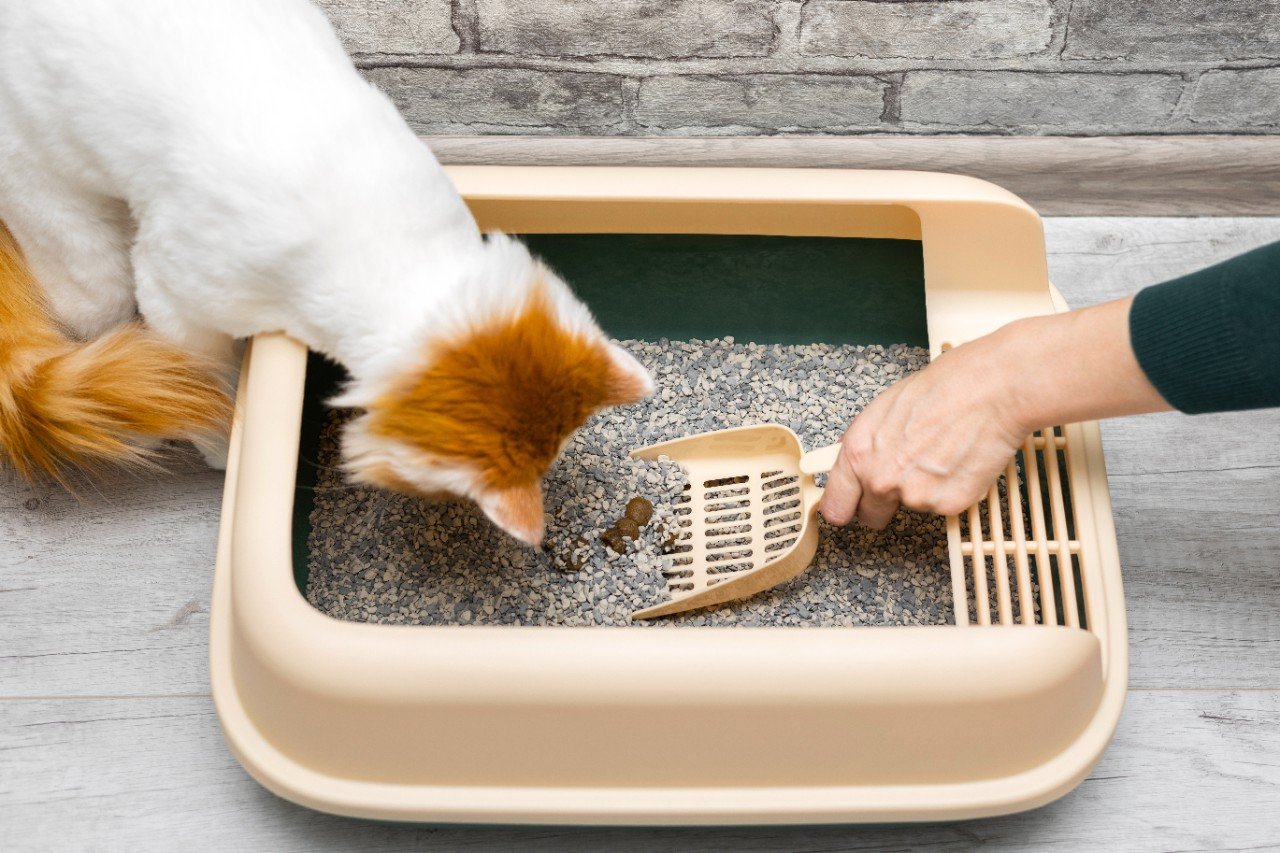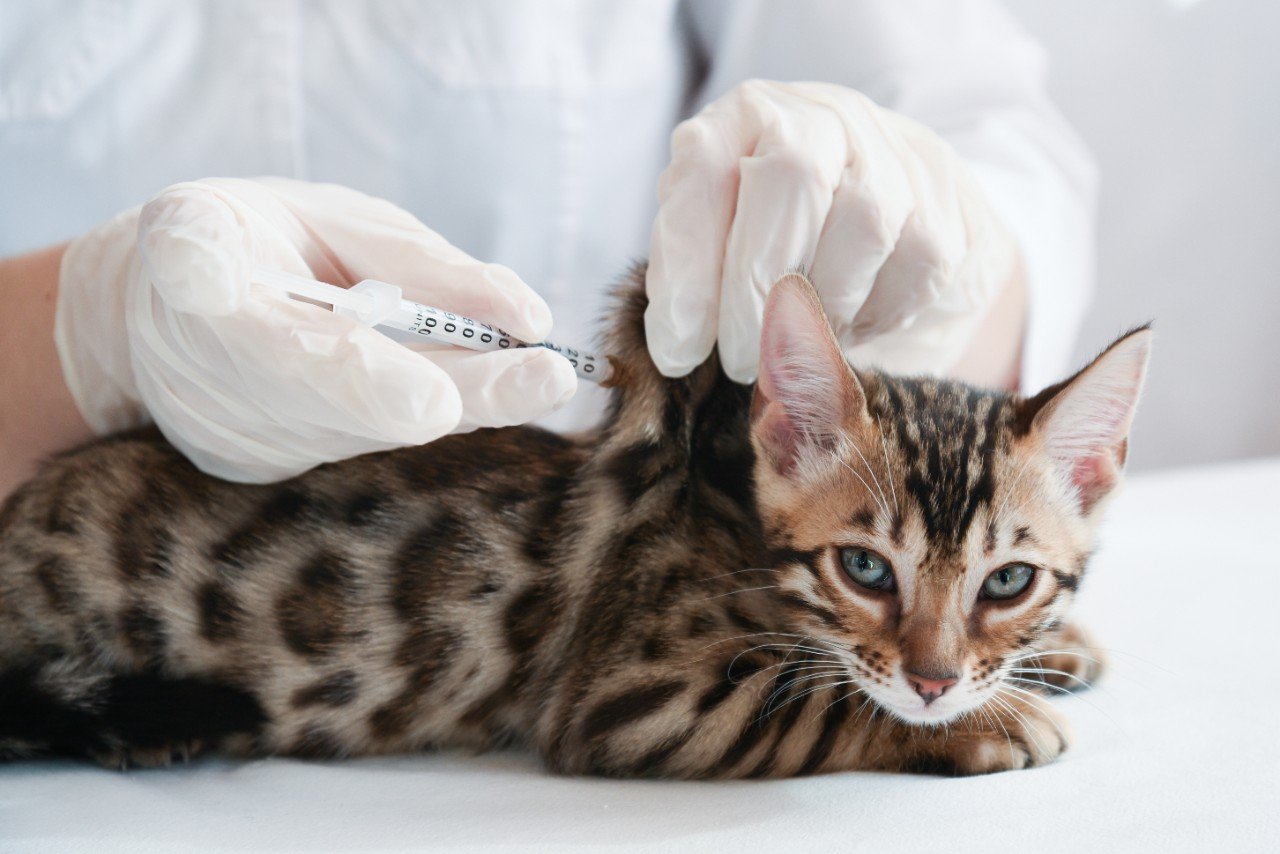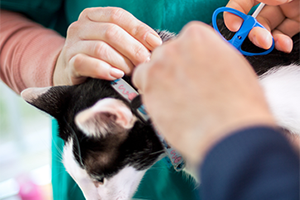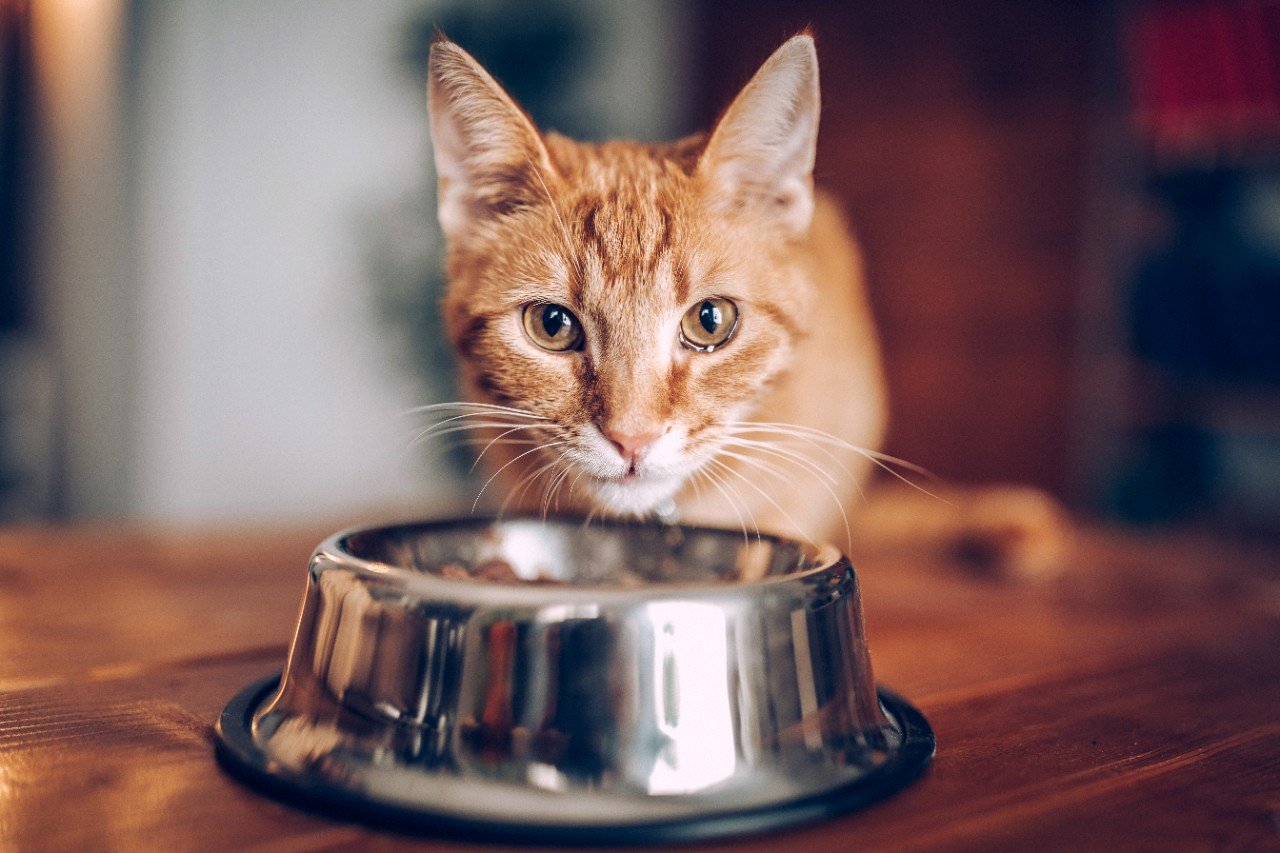
Egyptian Mau

Athletic and elegant, this breed loves to play
Vital stats
Swipe to view more
| Size: | Medium |
| Coat: | Short, fine and silky |
| Life span:9 | 15 years |
| Temperament: | Loyal, playful, athletic |
Egyptian Mau personality & temperament

- Its graceful body and almond-shaped green eyes look exotic, yet this breed is far from aloof – an Egyptian Mau cat is a playful addition to the family and loves to learn new tricks. Boredom can be kept at bay with lots of attention and plenty of toys, games or companion pets to play with.
- The Egyptian Mau cat personality is affectionate and friendly, but the cats often form a strong bond with just one person.
- Egyptian Maus are very playful when feeling comfortable and can make lovely faithful companions. However, they can be a bit standoffish with strangers and do need their own space.
- Despite needing their own space sometimes, Egyptian Maus’ personality traits mean that they can suffer from depression and loneliness if they don’t have sufficient attention. It’s a balance that takes time to work out and differs according to your individual cat’s personality and characteristics.
- While this isn’t the most vocal of cat breeds, Egyptian Mau cats do have a chatty personality and their vocalisations have even been described as musical! They make a variety of entertaining sounds.
Egyptian Mau food & diet

Egyptian Maus don’t tend to run into nutritional issues, so they’re easy to feed! It’s best to keep them on a high-protein, meat-based diet.
- All cats, including this breed, are obligate carnivores, so an Egyptian Mau’s diet should always be meat-based.
- Like many other cat breeds, good hydration can be difficult to maintain as they tend to not drink enough water. That means, the best cat food for Egyptian Maus is a mixture of wet and dry to ensure they get their water from their food.
- While there’s no specific Egyptian Mau kitten food, younger cats usually need a different diet than they do when fully grown. Most kitten foods in pet shops will meet this requirement but check with your vet if you need some guidance.
Egyptian Mau grooming & coat care

- The Egyptian Mau cat coat is more or less self-grooming, so you don’t need to worry about any specific cat grooming This is a very clean and well-maintained breed.
- However, the breed is a moderate shedder so you will need to keep an eye on this, and might want to consider regularly brushing your cat, for the sake of your furniture and clothes.
- Egyptian Maus are tactile and affectionate, so your cat will probably enjoy being brushed even if it’s not necessary. Gentle cat grooming - especially with their favourite human - is a lovely way to bond. As with any cat, though, make sure your cat is well-socialised to grooming from an early age.
- Use your grooming sessions to check your cat for lumps and bumps, as well as any skin issues and flea bites.
Egyptian Mau training & behaviour

With intelligence and playfulness to spare, there’s never a dull moment with an Egyptian Mau in your life.
- Egyptian Mau cats are highly intelligent and can be taught to do many things, such as fetching, coming when called or being walked on a lead.
- Egyptian Mau cats are extremely athletic and they love to climb and chase toys. They need plenty of exercise and opportunities to stretch their legs and scratch their claws. They have a great sense of fun and love to play games!
- They are very athletic and like running and jumping, and have very powerful hind legs that allow them to jump impressively high. They’re also the fastest domestic housecat.
- You’ll likely find your Egyptian Mau cosying up next to warm things in your home - this breed is a bit sensitive to temperature. Why not check out these recommended heated cat beds?
Common Egyptian Mau health conditions

What to know before you buy or rehome a Egyptian Mau cat

Egyptian Maus make lovely pets but what do you need to know before bringing your cat home?
- This is a very rare breed of cat in the UK - with fewer than 200 kittens officially registered with the Cat Fanciers’ Association. This not only makes them an expensive breed to bring into your family, but means they are more likely to be stolen - and as such, should be kept indoors.
- They’ll need a lot of stimulation and fun - so if you’re looking for a lap-cat, an Egyptian Mau is probably not the best fit.
- Before welcoming your new cat, it’s worth bearing in mind that this breed often form strong bonds with just one human.
- Egyptian Maus can be heavy shedders so be prepared for lots of cat hair on your clothes and furniture.
- These cats love to jump and scratch so you’ll need to provide them with plenty of toys and cat-friendly perches to prevent them from getting bored.
Egyptian Mau frequently asked questions
Egyptian Mau insurance considerations
We always offer these things as standard:
Physiotherapy & pet therapies
Along with physiotherapy, which is covered within the Vet Bills benefit, we also cover Pet Therapies like herbal medicine, homeopathy and acupuncture. You can also claim for hydrotherapy, up to £500 per illness/injury in dogs and cats (no additional limit for rabbits).
Petplan is a trading name of Pet Plan Limited (Registered in England No. 1282939) and Allianz Insurance plc (Registered in England No. 84638), Registered office: 57 Ladymead, Guildford, Surrey GU1 1DB.
Pet Plan Limited is authorised and regulated by the Financial Conduct Authority. Financial Services Register No. 311969. Allianz Insurance plc is authorised by the Prudential Regulation Authority and regulated by the Financial Conduct Authority and the Prudential Regulation Authority. Financial Services Register No. 121849. Pet Plan Limited is a subsidiary of Allianz Insurance plc.
